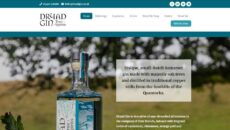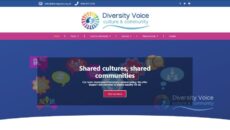Home / Is Twitter Right for Businesses?
What is Twitter?
Twitter is a social networking site that allows its users to post messages or ‘tweets’ to other users who have decided to ‘follow’ them. What separates it from other social network sites, and is perhaps considered its unique selling point, is the fact that there is a 140 character limit on tweets.
Although Facebook remains the most popular social networking website on the web with over 800 million active users, Twitter has really gained a lot of ground during the last two years and now has 100 million active users of its own.
How can Twitter help businesses?
For businesses, using a Twitter account is considered a form of marketing. The purpose of having an account is to forge a relationship with the public, updating them with news and content related to the business and its industry, as well as providing a means of communicating directly with those who are interested. Regular interaction with followers in this way helps create a friendly, positive, approachable image, and by accurately answering any questions posed a business can also showcase its expertise and raise its credibility, as well as publicly draw attention to the fact that it cares for its customers/followers.
Advantages
Although Twitter is about interacting with followers, it is also essentially a cost-free way of marketing via the internet. It provides a simple method of advertising the business and its products directly to those who are interested (i.e. those that have chosen to follow). Note, however, that over-advertising will dent a business’ reputation.
Twitter also gives a business a free way of researching the needs and desires of its target audience. By reading the tweets and profiles of followers (and speaking to them, if the account is being used properly), a business can gain an understanding of their current interests and opinions, which will allow it to make more suitable marketing strategies. Another important factor is speed; with Twitter, communication is achievable instantly, whilst other mediums such as online polls and contact forms take more time as well as being less personal.
Disadvantages
One ‘flaw’ with Twitter is that it can be incredibly addictive. Regular participation in conversations can distract from other work, lowering productivity. It would be wise for a business to set a time limit for Twitter use each day (at least during business hours).
Twitter is also susceptible to spam. Spam accounts and tweets will need to be regularly removed, as they could affect a business’ view of its target market.
Is Twitter right for my business?
Before registering an account for your business, you should consider what percentage of your target audience actually uses Twitter. If it’s relatively low, a different marketing approach may be more appropriate.
Next, you need to be sure you’ll have the time to regularly use your Twitter account. Using Twitter isn’t like other forms of marketing where you pay the money and sit back – interaction with followers needs to happen sufficiently frequently. Nothing puts followers off more than having to wait too long for a reply. Part of the working day will need to be allocated to posting tweets and engaging with followers.
Finally, you need to decide upon your Twitter strategy. What will you tweet about? How formally and what sort of language will you use to communicate with followers? It is vital to listen to what your followers have to say and respond accordingly; simply posting constant advertising and news will not impress anyone, and very few people will listen.
No-one can argue that social networking isn’t growing. But before you start a marketing campaign based around it, make sure you have come up with a plan. A strong Twitter page is one that presents relevant and valuable information to the audience, but in a creative and unique way.
OUR PORTFOLIO










